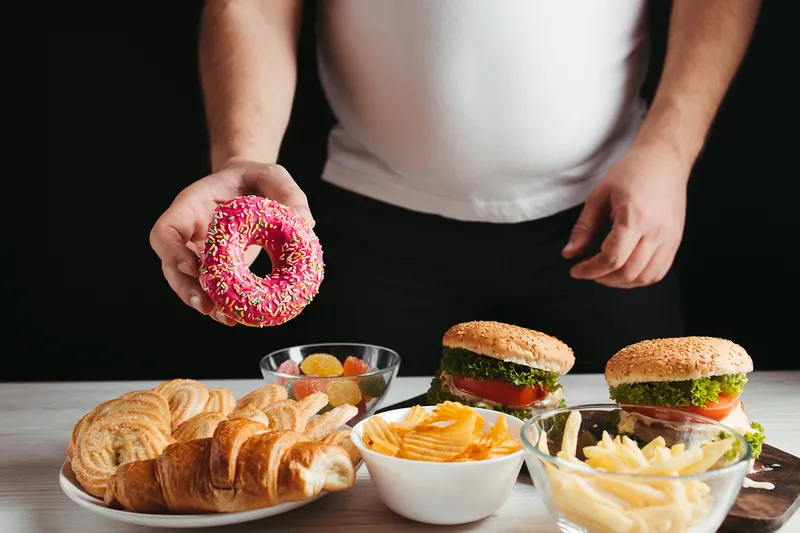Rat snacking and its impact on gut health
Let’s examine the drawbacks of this quick, guilt-indulgent snacking, often involving odd food pairings, and ways to mitigate the negative effects of this habit on gut health.
In this era of rapid technological advancements and increasing distractions, stress levels have become a common concern. One noticeable shift, particularly among GenZ, is the move away from the traditional three-meals-a-day habit towards a snacking-centric lifestyle.
One of the latest trends gaining traction on social media is ‘rat snacking’, and it's worth exploring how this new eating pattern is affecting gut health.
What is rat snacking?
Rat snacking is a peculiar food trend where individuals mimic rodent-like behaviour by constantly seeking out leftover food scraps to create impromptu meals. This involves frequent snacking between main meals and experimenting with unconventional food combinations.
Rat snacking epitomises quick, guilt-indulgent snacking, often involving odd food pairings consumed hastily, as opposed to preparing a full meal.

The proliferation of rat snacking can be attributed to the rapid dissemination of trends through social media platforms.
Unlike in the past, where trends took time to gain momentum, today’s social media landscape allows ideas to reach millions almost instantaneously. Rat snacking, despite its unappealing name, has gained popularity, especially given the rising stress levels and emotional eating prevalent in society.
Effects on gut health
While rat snacking might seem convenient and enjoyable, it comes with significant drawbacks, particularly concerning gut health.
Weight gain and obesity
Excessive calorie intake from frequent snacking, especially on high-sugar and high-fat foods, can lead to weight gain and obesity. This eating pattern disrupts hunger and satiety signals, contributing to overeating.
Nutritional deficiency
A lack of dietary diversity and nutrient-dense foods can result in nutritional deficiencies, impacting overall health and well-being. Essential nutrients like vitamins, minerals, and fibre may be lacking in a rat snacking diet. Disrupted meal times also hinder proper digestion and nutrient absorption.
Poor-gut microbiome
Rat snacking can disrupt the gut microbiome, leading to issues such as leaky gut and small intestinal bacterial overgrowth. This can cause digestive problems such as acidity, constipation and bloating.
Blood sugar imbalance
Snacking on sugary and processed foods can cause rapid spikes and crashes in blood sugar levels, potentially leading to insulin resistance and type 2 diabetes.

How to avoid rat snacking?
To mitigate the negative effects of rat snacking on gut health, consider the following strategies.
- Establish a set meal plan: Aim for two to three balanced meals a day with planned snacks to avoid impulsive snacking.
- Choose nutrient-dense foods: Prioritise fruits, vegetables, lean proteins, whole grains, and healthy fats for sustained energy and overall health.
- Practise mindful eating: Pay attention to hunger and fullness cues, eat slowly, and avoid distractions to promote better digestion and prevent overeating.
- Plan and prepare healthy snacks: Stock up on healthy snacks to avoid reaching for unhealthy options when hunger strikes.
Here are some healthy snack options:
Masala papad: Roast or fry papadum (thin, crisp Indian bread made from lentil flour) and sprinkle it with chaat masala, chopped onions, tomatoes, and a squeeze of lemon juice for a flavourful snack.
Steamed dhokla: Make dhokla using a fermented batter made from rice and chickpea flour. Steam it until fluffy and serve with green chutney for a light and protein-rich snack.
Yoghurt parfait: Layer plain yoghurt with fresh fruits, nuts, seeds, and a drizzle of honey or maple syrup for a healthy and satisfying snack that’s packed with probiotics and nutrients.
- Stay hydrated
- Drink enough water throughout the day to prevent mistaking thirst for hunger and curb unnecessary snacking.
- Adopting a mindful and balanced approach to snacking can help individuals enjoy their food while maintaining good digestive health.
(The author is a functional medicine expert.)
Edited by Swetha Kannan
(Disclaimer: The views and opinions expressed in this article are those of the author and do not necessarily reflect the views of YourStory.)







